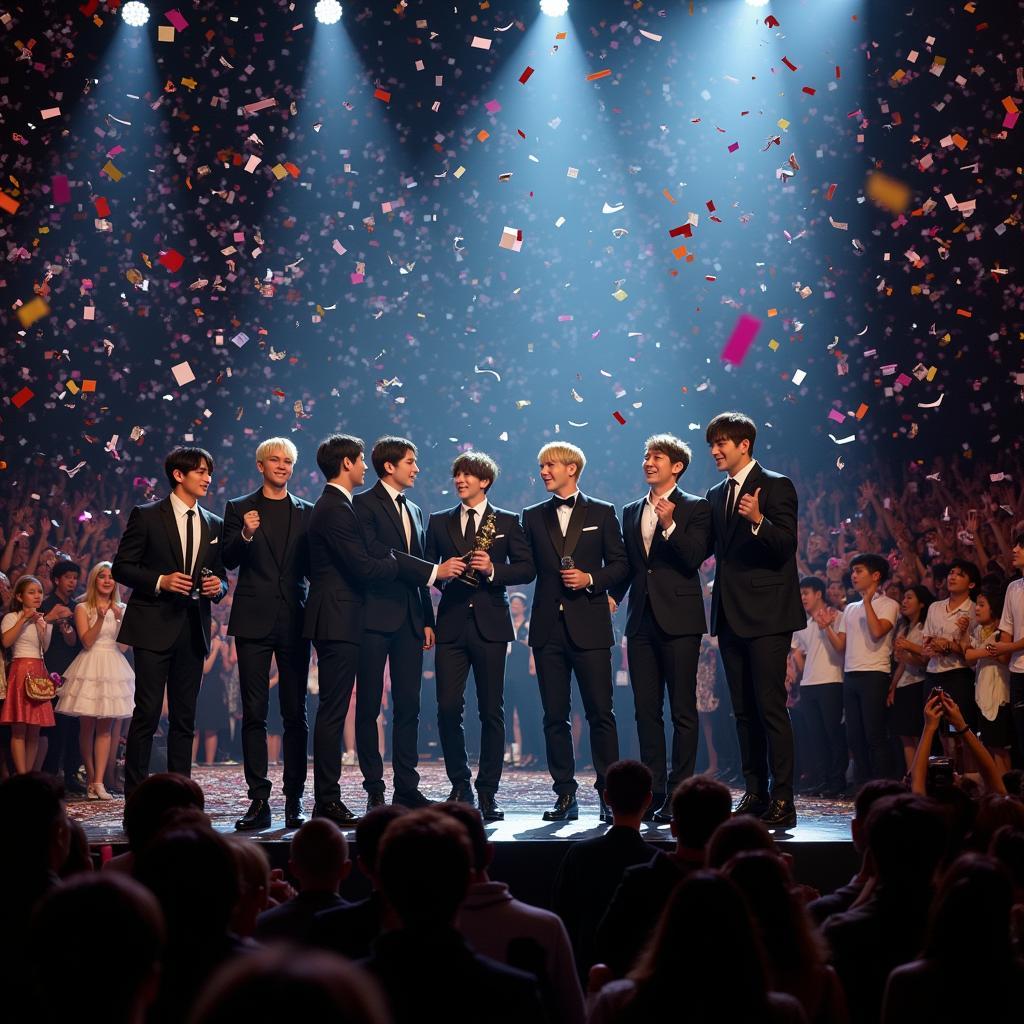The world of K-Pop, with its catchy tunes and perfectly synchronized dance moves, has been taken by storm by the global sensation that is BTS. Yet, alongside their legions of devoted fans, the group also encounters a phenomenon that can be baffling and unsettling: anti-fans. This begs the question: why do people hate BTS?
 Anti-fan comments online
Anti-fan comments online
Delving Deeper than the Music: Exploring the Roots of Anti-Fan Sentiment
While it might seem counterintuitive to dislike something as seemingly innocuous as a music group, the animosity towards BTS often stems from more complex societal and psychological underpinnings than simply not liking their music.
The Price of Fame: Tall Poppy Syndrome and the Backlash Against Success
One explanation for the anti-fan phenomenon lies in a concept known as “tall poppy syndrome.” This sociological phenomenon describes the tendency to criticize and resent individuals who have achieved significant success or recognition. In the context of BTS, their unprecedented global stardom, breaking records and surpassing expectations, can breed resentment among those who perceive their success as excessive or undeserved.
 BTS winning an award at a music show
BTS winning an award at a music show
Beyond Music: Xenophobia and Cultural Bias in the Anti-Fan Narrative
Another layer to the anti-fan sentiment can be attributed to xenophobia and cultural bias. As a South Korean group breaking into a global, predominantly Western music market, BTS faces prejudice and discrimination rooted in cultural differences. Some anti-fans might harbor negative stereotypes about Korean culture, projecting their biases onto the group and using it as justification for their dislike.
The Illusion of Perfection: Manufactured Personas and the Backlash Against Inauthenticity
The K-Pop industry, with its meticulously crafted idols and tightly controlled public images, often faces criticism for perpetuating unrealistic beauty standards and manufactured personas. While BTS has been lauded for their relative authenticity and openness, some anti-fans might view their public image as inauthentic or overly curated, fueling their dislike.
Navigating the Digital Battleground: Online Toxicity and the Amplification of Hate
The internet, while being a platform for connection and community building, also serves as a breeding ground for online hate and cyberbullying. Anti-fan sentiment toward BTS is often amplified in the digital sphere, with online platforms becoming echo chambers for negativity and harassment. This online toxicity can have a significant impact on both the group and their fans, creating a hostile and divisive environment.
The Psychology of Anonymity: Emboldened Aggression and the Dark Side of Online Interaction
The anonymity provided by the internet emboldens individuals to express aggression and hostility they might otherwise suppress in face-to-face interactions. This can lead to a proliferation of hate speech and cyberbullying, as individuals feel less accountable for their actions when hidden behind a screen.
Beyond Hate: Understanding the Nuances of Disagreement and Criticism
It’s crucial to differentiate between genuine criticism and hate-fueled attacks. While criticizing certain aspects of BTS’s music, performance, or public image is valid, resorting to personal attacks, spreading misinformation, or engaging in hateful behavior is unacceptable.
Moving Forward: Fostering a Culture of Respect and Understanding
Addressing the issue of anti-fan behavior requires a multi-faceted approach. Promoting media literacy, fostering empathy and intercultural understanding, and holding individuals accountable for online harassment are crucial steps in mitigating the negativity directed towards BTS and other public figures.
Conclusion: Recognizing the Humanity Behind the Idol Group
Ultimately, it’s essential to remember that BTS, despite their global stardom, are human beings with their own thoughts, feelings, and vulnerabilities. While disliking their music or having different opinions is perfectly acceptable, resorting to hate and harassment is never justified. By fostering a culture of empathy and respect, we can create a more inclusive and compassionate online and offline world.


